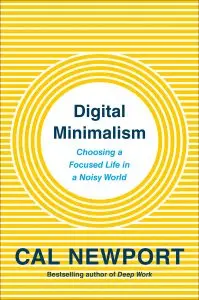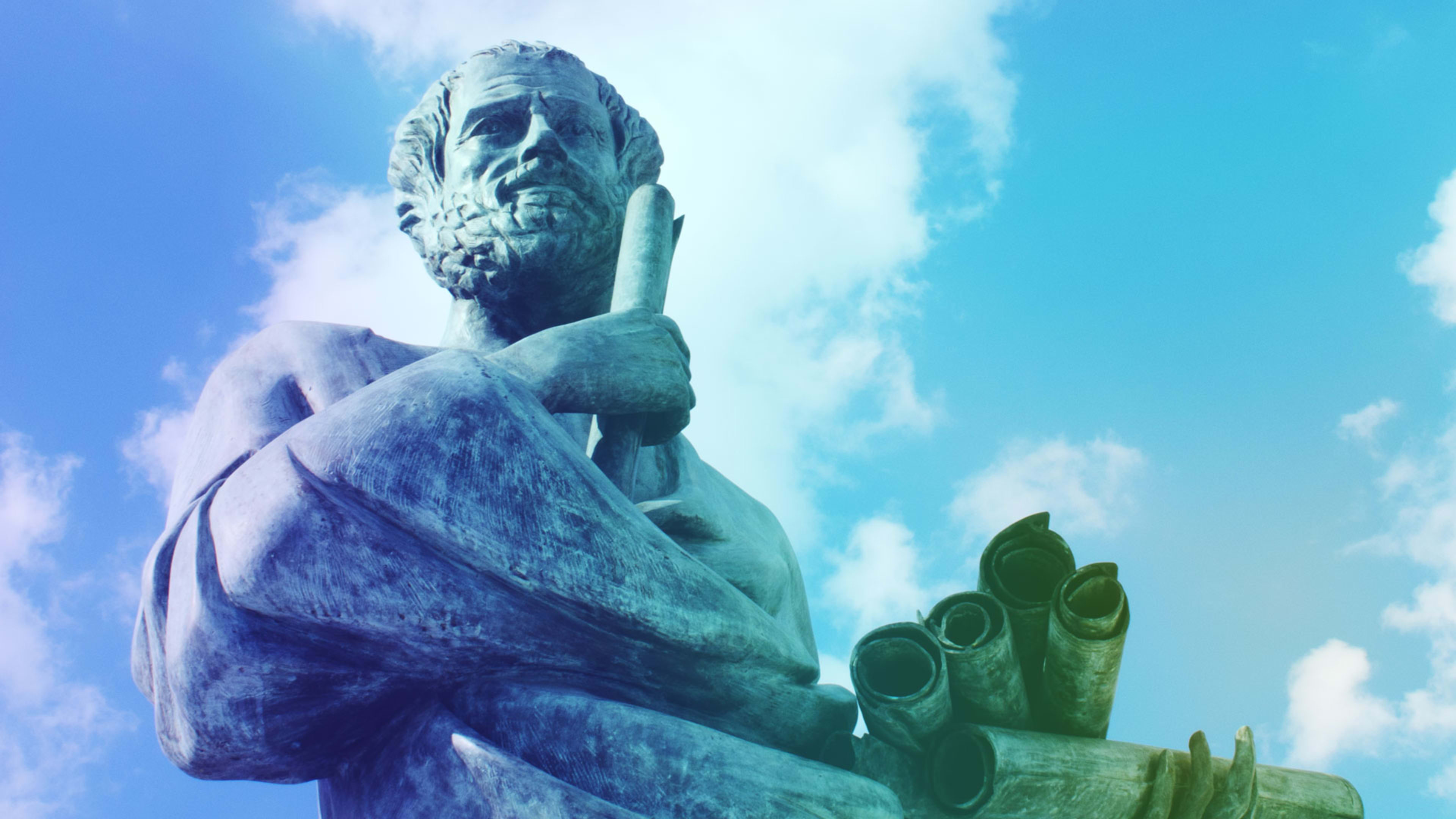In his Nicomachean Ethics, compiled in the fourth century BC, Aristotle tackles a question as urgent then as it is today: How does one live a good life? The Ethics divides its answer across ten books. Much of the first nine focus on what Aristotle calls “practical virtues,” such as fulfilling your duties, or showing courage when faced with danger and injustice. But then, in the tenth and final book of the Ethics, Aristotle steps back from this gritted‐teeth heroic virtue and makes a radical turn in his argument: “The best and most pleasant life is the life of the intellect.” He concludes, “This life will also be the happiest.”
As Aristotle elaborates, a life filled with deep thinking is happy because contemplation is an “activity that is appreciated for its own sake . . . nothing is gained from it except the act of contemplation.” In this offhand claim, Aristotle is identifying, for perhaps the first time in the history of recorded philosophy, an idea that has persisted throughout the intervening millennia and continues to resonate with our understanding of human nature today: a life well lived requires activities that serve no other purpose than the satisfaction that the action itself generates.
As the MIT philosopher Kieran Setiya expands in his modern interpretation of the Ethics, if your life consists only of actions whose “worth depends on the existence of problems, difficulties, needs, which these activities aim to solve,” you’re vulnerable to the existential despair that blooms in response to the inevitable question, Is this all there is to life? One solution to this despair, he notes, is to follow Aristotle’s lead and embrace pursuits that provide you a “source of inward joy.”
The importance of high-quality leisure
I call these joyful activities high-quality leisure. The reason that I’m reminding you here of their importance to a well‐crafted life–an idea that dates back over two thousand years–is that I’ve become convinced that to successfully tame the problems of our modern digital world, you must both understand and deploy the core insights of this ancient wisdom.
First, it’s useful to highlight a related phenomenon. Those of us who study the intersection of technology and culture are well read in the small but popular journalistic subgenre in which the author describes the experience of taking a temporary break from modern technologies. These brave souls almost always report that the disconnection generates a feeling of emotional distress. Here, for example, is the social critic Michael Harris describing his experience spending a week without the internet or cell service in a rustic cabin:
By the end of day two . . . I miss everyone. I miss my bed and my television and Kenny and dear old Google. I stare hopelessly for an hour at the ocean, a coruscating kind of liquid metal; I feel the urge to change the channel every ten minutes. But the same water goes on and on, like a decree. Torture.
This distress is often explained in the terminology of addiction, akin to withdrawal symptoms that an addict experiences. (“I remember that this was never going to be easy, that withdrawal symptoms are to be expected,” writes Harris about his experience at the cabin.) But this interpretation is problematic. The psychological forces that lead us to use technology compulsively are typically best understood as moderate behavioral addictions–which can make technology very alluring when it’s around but aren’t nearly as severe as chemical dependency. This explains many people describe this distress as more diffuse and abstract than what a substance addict feels when they’re going through classic withdrawal.
The impact of low-quality distraction

It’s not that Harris had a specific online activity that he missed (like a smoker without his cigarettes), it’s that he was uncomfortable about not having access in general. This distinction is subtle, but it’s also crucial for understanding the productive connection between Aristotle and digital minimalism. The more I study this topic, the more it becomes clear to me that low‐quality digital distractions play a more critical role in people’s lives than they imagine. In recent years, as the boundary between work and life blends, jobs become more demanding, and community traditions degrade, more and more people are failing to cultivate the high‐quality leisure lives that Aristotle identifies as crucial for human happiness.
This leaves a void that would be near unbearable if confronted, but that one can ignore with the help of digital noise. It’s now easy to fill the gaps between work and caring for your family and sleep by pulling out a smartphone or tablet and numbing yourself with mindless swiping and tapping. Erecting barriers against the existential is not new–before YouTube, we had (and still have) mindless television and heavy drinking to help avoid more profound questions–but the advanced technologies of the twenty‐first‐century attention economy are particularly effective at this task.
Harris felt uncomfortable, in other words, not because he was craving a particular digital habit, but because he didn’t know what to do with himself once he removed his general access to the world of connected screens.
Without leisure, you’ll find it challenging to declutter your digital life
If you want to succeed with digital minimalism, you cannot ignore this reality. If you begin decluttering the low‐value digital distractions from your life before you’ve convincingly filled in the void they were helping you ignore, the experience will be unnecessarily unpleasant at best, and a massive failure at worse. The most successful digital minimalists, therefore, tend to start their conversion by renovating what they do with their free time–cultivating high‐quality leisure before culling the worst of their digital habits.
In fact, many minimalists will describe a phenomenon in which digital habits that they previously felt to be essential to their daily schedule suddenly seemed frivolous once they became more intentional about what they did with their time. When you’ve filled the void, you no longer need distractions to help you avoid it.
This article is adapted from from Digital Minimalism: Choosing a Focused Life in a Noisy World by Cal Newport. It is reprinted with permission of Portfolio, an imprint of Penguin Publishing Group, a division of Penguin Random House LLC. Copyright © Cal Newport, 2019.
Recognize your brand’s excellence by applying to this year’s Brands That Matter Awards before the early-rate deadline, May 3.
